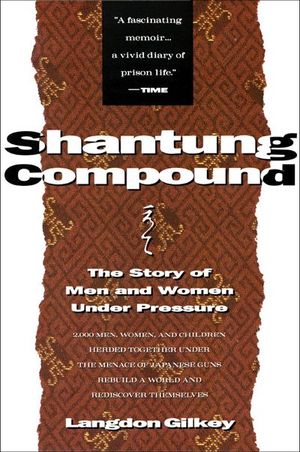Shantung Compound
Published by HarperCollins
An American’s diary of life in a WWII Japanese internment camp examining the moral challenges encountered in conditions of confinement and deprivation.
Langdon Gilkey was a young American teacher at Yenching University near Peking, China, when the Japanese military under wartime pressure rounded up all foreigners into an internment camp. Two and a half years later they were released. Shantung Compound is based on a journal Dr. Gilkey kept during his imprisonment.
The prisoners represented a cross-section of humanity. There were businessmen, professors, missionaries, importers, lawyers, doctors, junkies, prostitutes, little children, the old and infirm. The moral problems arising in this polyglot community were shocking and the responses often surprising.
The camp became a living laboratory, a miniature society that illustrated the human condition and moral dilemmas in a way that would not have been possible had more conventional conditions prevailed. Shantung Compound is a “fascinating memoir that is both a vivid diary of prison life and a theologian’s mature reflection on the condition of man in times of stress” (Time magazine).
Langdon Gilkey was a young American teacher at Yenching University near Peking, China, when the Japanese military under wartime pressure rounded up all foreigners into an internment camp. Two and a half years later they were released. Shantung Compound is based on a journal Dr. Gilkey kept during his imprisonment.
The prisoners represented a cross-section of humanity. There were businessmen, professors, missionaries, importers, lawyers, doctors, junkies, prostitutes, little children, the old and infirm. The moral problems arising in this polyglot community were shocking and the responses often surprising.
The camp became a living laboratory, a miniature society that illustrated the human condition and moral dilemmas in a way that would not have been possible had more conventional conditions prevailed. Shantung Compound is a “fascinating memoir that is both a vivid diary of prison life and a theologian’s mature reflection on the condition of man in times of stress” (Time magazine).
BUY NOW FROM
COMMUNITY REVIEWS

